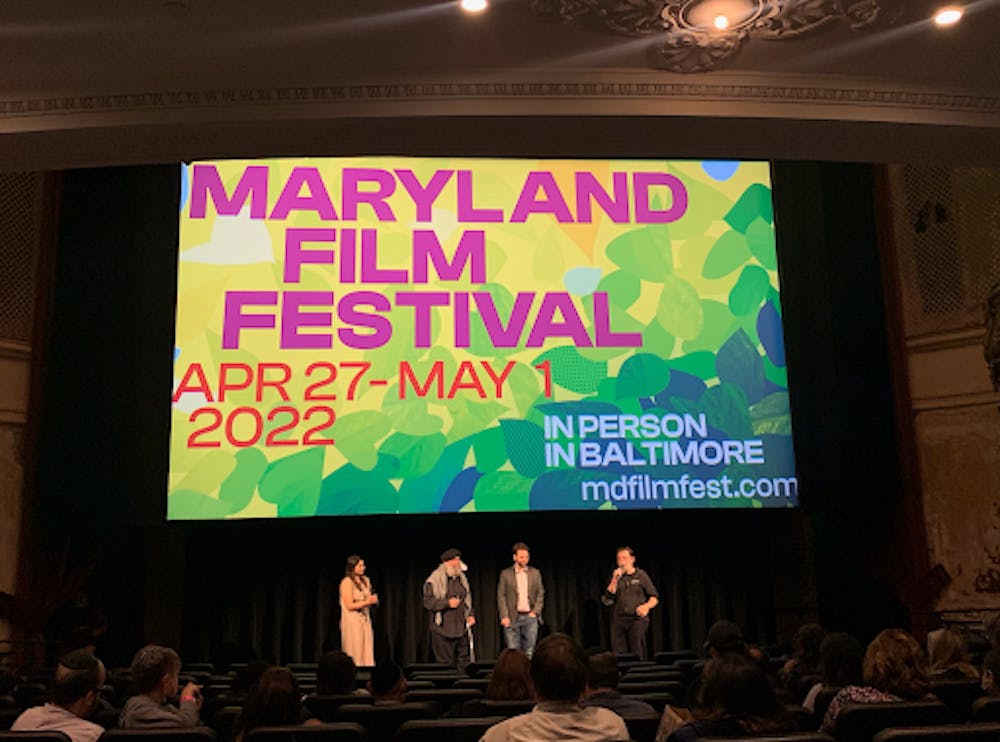The Maryland Film Festival made its first return back in-person after three years from April 27 to May 1, showing over 180 short and feature films.
I’ve discovered a newfound love for short films in the last year. Despite their brevity, they can pack so much punch, emotion and excitement. Getting to watch about 20 short films over the weekend and experience the festival’s comeback really fueled that passion. The films had me laughing, crying, screaming and everything in between.
I attended opening night on a whim because my friend was able to get me a free ticket to the viewing from the Film and Media Studies department. We watched six shorts that night, three of which especially stood out to me.
The first film we viewed was Mass Ave, which featured beautiful cinematography. The film spends most of its run showcasing the complex dynamic between son Macca, who wants to be an artist, and Saidu, Macca’s father who wants him to be a doctor.
Smile Little Ladybug captured my admiration unexpectedly. The documentary told the story of Andrea, who works as a clown. She is motivated by her grandfather’s torture and escape from Nazi camps to spread laughter and kindness through clowning. On the outside, these may sound like two things that don’t go together, but the themes flow beautifully as they detail the life of Andrea and her grandfather.
The final and most hilarious film was F^¢k '€m R!ght B@¢k, which stars Baltimore-based artist DDm. It is about a queer Black rapper who accidentally takes an edible and must maneuver his way out of taking a mandatory drug test. The short is humorous, insightful, colorful and filled with energy.
With hesitancy, my friend pushed me to speak to the director of Mass Ave, Omar Kamara, whose film had me so stunned that I searched up all the information I could find about him right after. I learned that he grew up ten minutes away from my hometown and went to one of my rival high schools. After talking with him and other filmmakers, we found ourselves at one of the Film Festival’s afterparties, where we were the youngest people in attendance. Meeting even more filmmakers and listening to their philosophies, ideas and views about the film world was a perfect opening to the rest of the festival.
The next day, I attended the film screening I was most excited to see: Sirens, a feature documentary directed by Rita Baghdadi, a Moroccan American filmmaker. It details the story of the Middle East’s first all-female metal band, Slave To Sirens, and the complex relationship between Lilas and Shery, two of the band’s members and former partners.
Growing up, I never saw media produced by Moroccans, so I had to honor that achievement on the director’s part. Watching the story was like watching a fictional narrative at times; Lilas and Shery’s chemistry is so pronounced, often unintentionally, onto the screen.
On the final day of the festival, I attended two short film screenings. The first was True Stories Shorts, a conglomeration of documentaries, and the second was Altered States Shorts, a mix of films that are a bit “out of this world” in my opinion.
Every single documentary short film was beautifully done, but one that especially caught my eye was “The Panola Project” from True Stories Shorts. The film detailed the efforts of Dorothy Oliver to vaccinate her Black rural Alabama town. The film lingers on some moments cinematically while simultaneously highlighting the organizers’ great efforts to support their communities when all institutions have intentionally failed them.
From the Altered States Shorts, the most memorable film was My House, Carl. The film is about a man named Pete who takes his girlfriend to his childhood home. When he arrives, he is reminded that his house can talk to him. It's quirky, funny and adds a lovable layer to the film through the dynamic between Pete and his girlfriend.
At the festival, I met so many incredible people, spent time with great friends and gained inspiration by the limitless ways movies can be created and leave an impact. I’ll definitely be clearing my schedule to attend more of the festival next year, and I hope more of the Hopkins community gets the chance to explore it as well.





